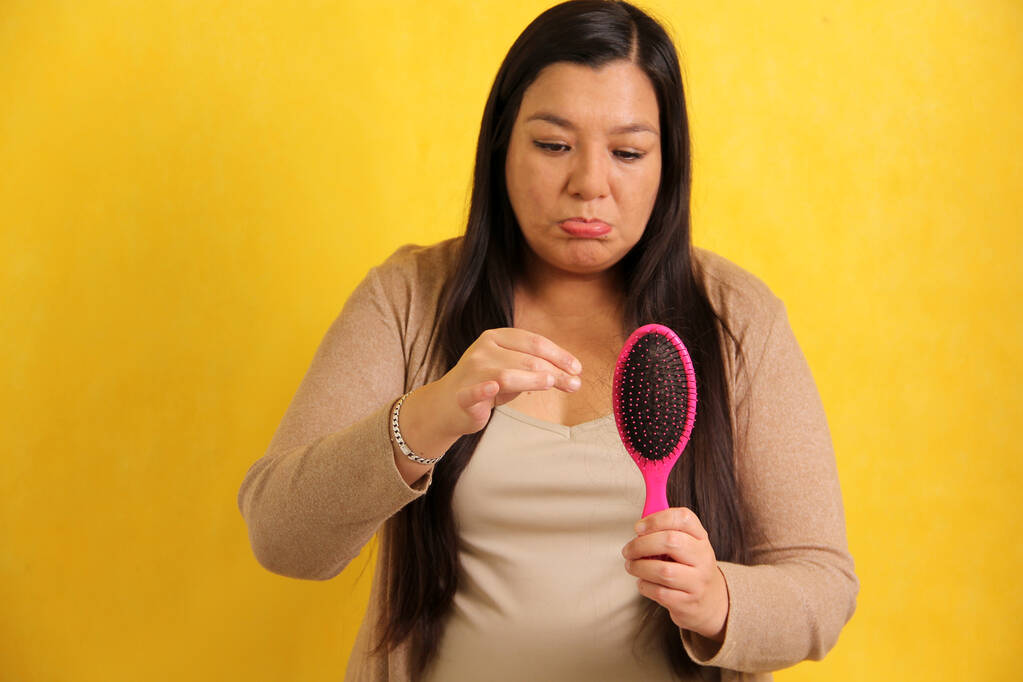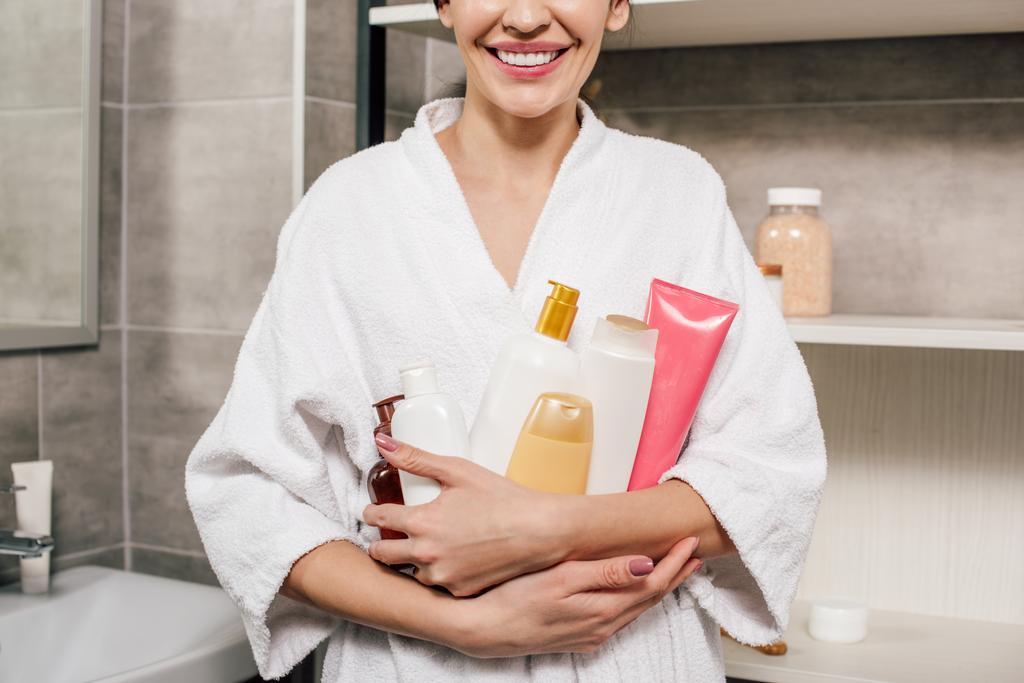Discover effective treatments and remedies to minimize postpartum hair loss.
Effective Treatments to Minimize Postpartum Hair Loss
Are you a new mom experiencing postpartum hair loss? Don’t worry, you’re not alone! Postpartum hair loss is a common condition that many women face after giving birth. In this article, we will explore effective treatments and helpful tips to minimize postpartum hair loss, so you can regain your luscious locks and feel confident once again.

Understanding Postpartum Hair Loss
First, let’s delve into the science behind postpartum hair loss. During pregnancy, hormonal changes cause a decrease in hair shedding, resulting in thick and luxurious locks. This is because the increased levels of estrogen prolong the growth phase of the hair follicles, leading to reduced hair loss. However, after childbirth, hormone levels drop, and the hair follicles enter a resting phase. This causes hair to fall out, and you may notice more hair in your brush or in the shower.
But fear not, postpartum hair loss is a natural and temporary phase that many women experience. It is your body’s way of readjusting hormonal levels and returning to its pre-pregnancy state. So, fret not, as your hair will eventually grow back to its usual glory.
The Science Behind Postpartum Hair Loss
Postpartum hair loss is not a cause for alarm. It is a common occurrence that affects many new mothers. The hair loss usually peaks around three to four months after giving birth and gradually resolves within six to twelve months. This shedding phase is known as telogen effluvium, and it affects approximately 50% of women postpartum.
During pregnancy, the increased levels of estrogen prolong the growth phase of the hair follicles, resulting in thicker and fuller hair. However, once hormone levels drop after childbirth, the hair follicles enter the telogen phase, where they rest and eventually shed. This shedding is a natural part of the hair growth cycle and should not be a cause for concern.
Natural Remedies for Postpartum Hair Loss
If you prefer a more natural approach to hair care, there are a few remedies you can try to reduce postpartum hair loss. Massaging your scalp with essential oils like rosemary or peppermint oil can stimulate blood flow and promote hair growth. These oils have been used for centuries for their beneficial properties in improving scalp health and hair growth.
Incorporating foods rich in vitamins C and E, biotin, and collagen into your diet can also help nourish your hair from within. Vitamin C is essential for collagen production, which strengthens the hair follicles. Vitamin E is known for its antioxidant properties, which can protect the hair follicles from damage. Biotin, a B-vitamin, is crucial for healthy hair growth, and collagen helps improve hair strength and elasticity.
Remember, while these natural remedies may support hair health, it is important to consult with your healthcare provider before trying any new treatments, especially if you are breastfeeding.
Nourishing Your Hair After Pregnancy
Hydration is key when it comes to maintaining healthy hair. Be sure to drink plenty of water to keep your hair hydrated from the inside out. Additionally, using a moisturizing shampoo and conditioner can help nourish your locks and prevent further hair loss.
It is also important to be gentle with your hair during the postpartum period. Avoid excessive heat styling, tight hairstyles, and harsh chemical treatments. Opt for gentle hair care practices, such as using a wide-toothed comb to detangle wet hair and allowing your hair to air dry whenever possible.
Furthermore, taking care of your overall well-being can positively impact your hair health. Getting enough sleep, managing stress levels, and maintaining a balanced diet can all contribute to healthier hair growth.
Remember, postpartum hair loss is a temporary phase, and with proper care and patience, your hair will regain its usual thickness and vitality. Embrace this journey of motherhood and know that your hair will bounce back in due time.
Tips for Managing Postpartum Hair Loss
Managing postpartum hair loss may feel like a challenge, but fear not! Here are some helpful tips to make the process a little easier:
Postpartum hair loss is a common occurrence for many new mothers. It is a result of hormonal changes that happen after giving birth. While it can be distressing to see clumps of hair falling out, rest assured that this is temporary and your hair will eventually return to its normal state.
If you’re looking for a quick fix to disguise thinning hair, try changing your parting. Switching up your part can add volume and give the illusion of fuller hair. Experiment with different parting styles to find the one that suits you best.
Another styling hack for thinning hair is to opt for hairstyles that involve braids or updos. These hairstyles can help create the appearance of thicker locks by adding texture and volume. You can also use accessories like hair clips or headbands to add some flair to your hair while making it look fuller.
In addition to styling hacks, there are several ways you can boost hair growth postpartum. Regular scalp massages stimulate blood flow to the hair follicles, promoting growth. You can use your fingertips or a gentle brush to massage your scalp in circular motions. This not only promotes hair growth but also helps in relaxation and stress relief.
Consider taking supplements containing biotin, zinc, and iron, which are known to support healthy hair growth. However, it is important to consult with your healthcare provider before adding any supplements to your routine, as they can interact with other medications or have side effects.
Aside from external factors, your lifestyle habits can also affect your hair health. Make sure you’re getting enough sleep and managing stress levels, as both can impact your hair growth cycle. Stress can lead to hair loss, so finding ways to relax and unwind is crucial. Consider incorporating stress-reducing activities into your daily routine, such as meditation, yoga, or taking walks in nature.
In addition to managing stress, maintaining a balanced diet and exercising regularly can contribute to overall hair health. Make sure you’re consuming a variety of nutrient-rich foods, including fruits, vegetables, lean proteins, and healthy fats. These provide essential vitamins and minerals that support hair growth and strength.
Remember, postpartum hair loss is a temporary phase, and with proper care and patience, your hair will regain its fullness and vitality. In the meantime, embrace your natural beauty and explore different hairstyles and accessories to boost your confidence.
Choosing the Right Products for Postpartum Hair Loss
Postpartum hair loss can be a frustrating experience for new moms. As your body adjusts to the hormonal changes after giving birth, you may notice excessive shedding and thinning of your hair. But fear not! There are products available that can help promote hair growth and nourish your locks.
Essential Ingredients in Postpartum Hair Loss Products
When it comes to choosing the right products for postpartum hair loss, there are a few key ingredients to look out for. Biotin, keratin, and collagen are known to strengthen and nourish the hair follicles, promoting growth. These ingredients work together to provide the necessary nutrients for healthy hair.
Biotin, also known as vitamin B7, is essential for the production of keratin, a protein that makes up the structure of your hair. By incorporating biotin into your hair care routine, you can help strengthen your hair from the inside out.
Keratin, on the other hand, is a fibrous protein that acts as a protective barrier for your hair. It helps to prevent damage and breakage, which is especially important during the postpartum period when your hair may be more fragile.
Collagen, a protein found in the connective tissues of your body, is another key ingredient to look for in postpartum hair loss products. It helps to improve the elasticity of your hair, making it less prone to breakage and promoting overall hair health.
In addition to these essential ingredients, keep an eye out for products containing natural oils like argan or coconut oil. These oils are rich in fatty acids and antioxidants, which can provide much-needed moisture to your hair and scalp. By keeping your hair hydrated, you can help prevent breakage and promote healthy growth.
Finding the Best Shampoos for Postpartum Hair Loss
Shopping for shampoos can be overwhelming, but fear not! There are shampoos specifically formulated for hair loss or thinning hair that can help address your postpartum hair concerns.
When searching for the best shampoo for postpartum hair loss, look for products that contain ingredients like caffeine or minoxidil. Caffeine has been shown to stimulate hair growth by increasing blood circulation to the scalp, while minoxidil is an FDA-approved ingredient that can help regrow hair.
Don’t be afraid to experiment and find the shampoo that works best for you and your specific needs. Everyone’s hair is unique, so what works for one person may not work for another. Look for shampoos that are gentle on your hair and scalp, and that leave your hair feeling clean and refreshed.

Conditioners and Treatments for Postpartum Hair Loss
In addition to using a nourishing shampoo, incorporating a hair conditioner and treatment into your hair care routine is essential for combating postpartum hair loss.
Look for conditioners that provide extra moisture and strengthen the hair. Ingredients like shea butter, aloe vera, and jojoba oil can help hydrate your hair and improve its overall health. These conditioners can also help detangle your hair, making it easier to manage and style.
Treatments such as hair masks or serums can also aid in nourishing and repairing damaged hair. Look for products that contain ingredients like argan oil, which is known for its moisturizing and nourishing properties. These treatments can be used once or twice a week to give your hair an extra boost of hydration and promote healthy growth.
Remember, postpartum hair loss is temporary, and with the right treatments and care, you’ll soon be rocking a fabulous head of hair once again. Embrace the journey of new motherhood, and know that you are beautiful inside and out, with or without a full head of hair!



